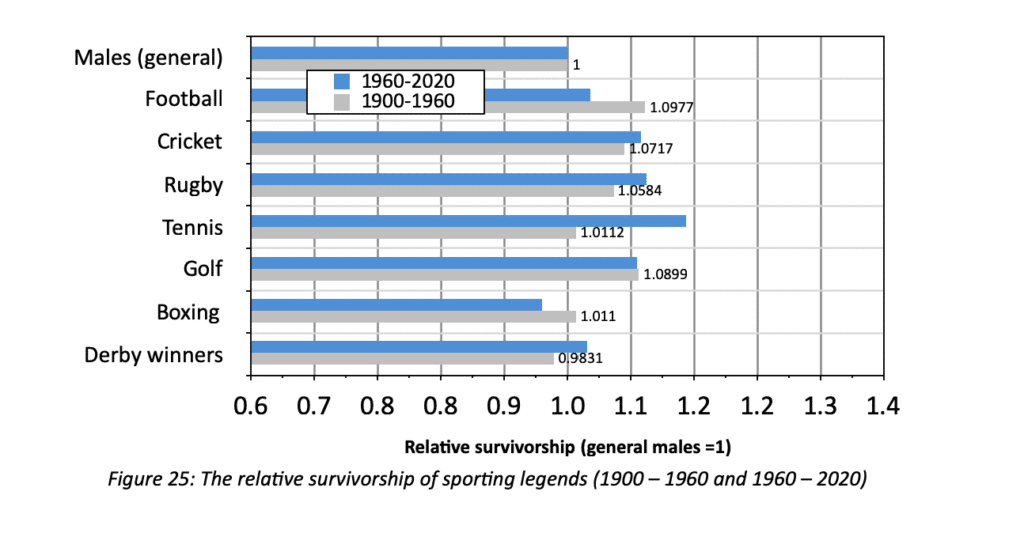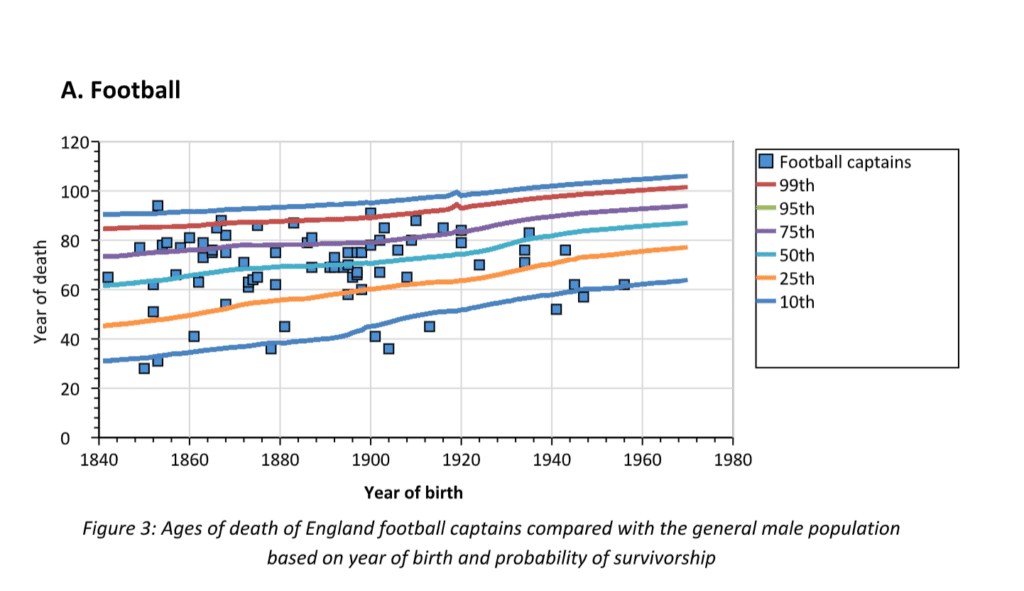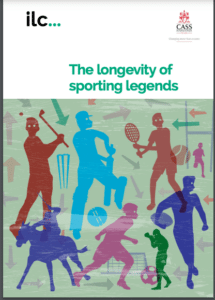Everyone for tennis
By George Lee •
Want to know which sport is the best to take part in and the best to keep us living longer? (the headline might give you a clue)
This Age Thing spoke to Professor Les Mayhew, Head of Global Research at the International Longevity Centre UK, about his recent Longevity of Sporting Legends study. It is a fascinating historical piece of research, spanning over a hundred years and asks the question, can playing sport really help us live longer, and which sports are the best to play?
Professor Les Mayhew’s research, which you can read in full here, looks at extensive data across seven sports: tennis, golf, rugby, cricket, horse racing, boxing and football, examining the relationship between sport and longevity.
I spoke to Les about the findings and started by asking him about the most surprising insights from the research: “I was expecting some differences, but I wasn’t expecting the scale of differences and how these changed over time. While we might expect boxing to reduce the lifespan of professional sportsmen, I think very few of us would have put tennis at the top of the league in the longevity stakes.”

One of the most intriguing insights from the data was that football played out quite badly, with the longevity of elite footballers showing a slight decline in recent years. I asked Les why he thought this was the case: “I don’t think they used to train as hard pre-war. There wasn’t such a premium on results. The pressure on professional footballers is much greater now, more games, more intense training, more competition.”
Often wondering about the long term effects of intense training, I wanted to know if Les has any thoughts on the long term effects of intense training on longevity. At the moment, research is still anecdotal but Les agrees sports governing bodies must look into the longevity of their athletes and how current training impacts longevity, as well the short term focus on immediate results. As Les points out, governing bodies are “more interested in optimising performance rather than future mortality”.
Much has improved over the last hundred century; footballers no longer play with waterlogged leather balls and jockeys are living longer due of safer riding conditions. However, there is a sport that still has a significant effect on longevity – boxing. Unlike cricket and rugby, which are linked to high educational attainment and wealth in the Sporting Legends research, boxing is still seen as a way out of deprivation for people in the UK. This leads us to consider the importance of role models, the areas where we grow up and our schools and our parents’ input, all of which have a significant impact on our health and longevity, whether you are an elite athlete or not.

Les has high hopes for the impact of this report – he not only hopes to encourage sports governing bodies to share their data on the longevity of their members, he also wants an increased emphasis on healthy sporting practices in schools at the earliest opportunity. Moreover, Les would like to see the media focus on the healthy side of sports, rather than the knee-jerk reporting of dementia caused by rugby, football, and boxing – data that is clearly called into question by this longevity research.
Finally, I ask Les whether I am a lost cause. I was the last person picked on any team at school and my hand-to-eye skills are virtually non-existent (much to the disappointment of my dad who was a very good cricketer). I am now a runner and a swimmer but I want to know whether not being good at sport or even interested in it when I was younger is a problem for my own longevity. “Ideally you would start long before you were 50 but if you haven’t tried anything before, it is never too late to try anything.”
With that in mind, let’s all get moving and encourage our children and grandchildren to get active. As Les’ shared with me, playing sports with others is good for us – let’s get moving with our friends and families of all ages.


Professor Les Mayhew is Head of Global Research at ILC UK and Professor of Statistics at the Business School (formerly Cass) University of London in the Faculty of Actuarial Science and Insurance. He is an Honorary Fellow of the Faculty of Actuaries and a member of the Royal Economic Society. He was a former senior civil servant for the Department of Health and Social Security, Department of Social Security, Treasury and a Director in the Office for National Statistics.
Les loves sport, although his only notable success was winning the Civil Service mixed tennis doubles – an achievement which now seems like ancient history. His interest in statistics was kindled by keeping scores for his dad’s cricket team at a very young age. He also confesses to supporting a well-known premier league football team but refuses to say which one to avoid accusations of bias!